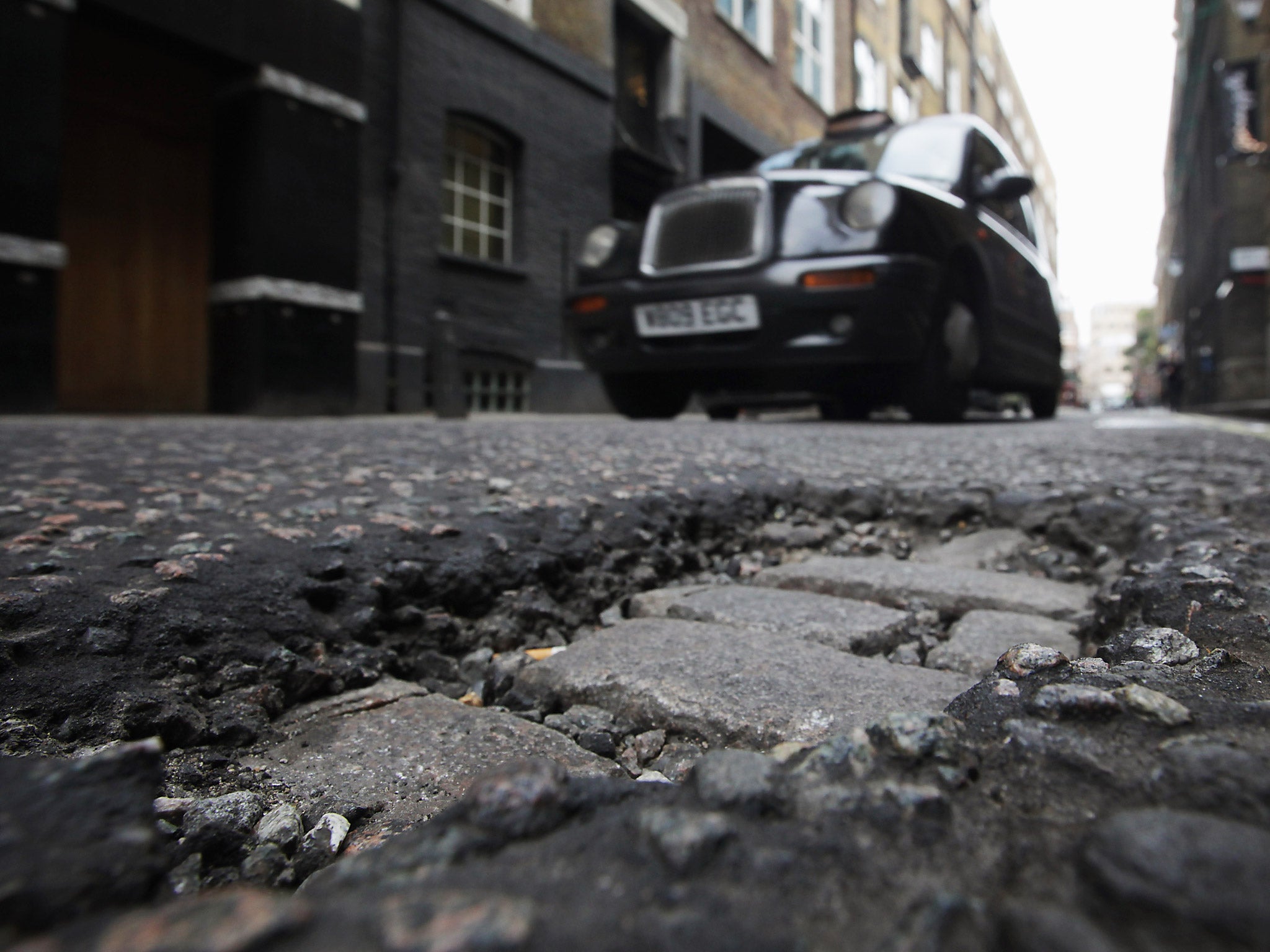Pothole repair backlog in England and Wales will take 14 years
Cold weather and decades of underinvestment have caused a ‘roads crisis’ in England, say council leaders

Your support helps us to tell the story
From reproductive rights to climate change to Big Tech, The Independent is on the ground when the story is developing. Whether it's investigating the financials of Elon Musk's pro-Trump PAC or producing our latest documentary, 'The A Word', which shines a light on the American women fighting for reproductive rights, we know how important it is to parse out the facts from the messaging.
At such a critical moment in US history, we need reporters on the ground. Your donation allows us to keep sending journalists to speak to both sides of the story.
The Independent is trusted by Americans across the entire political spectrum. And unlike many other quality news outlets, we choose not to lock Americans out of our reporting and analysis with paywalls. We believe quality journalism should be available to everyone, paid for by those who can afford it.
Your support makes all the difference.It would take 14 years and cost £12bn to repair all of the potholed roads in England and Wales, according to new research.
Analysis by the Local Government Association (LGA) suggests the road repairs backlog has soared by almost a third in a decade, having risen from 10.9 years in 2006.
The LGA says the “roads crisis” is due to a lack of funding given to councils for road repairs – and is calling on the Government to invest £1bn a year in fixing Britain’s streets.
Council leaders want Philip Hammond, the Chancellor, to invest 2p per litre from fuel duty revenue into road maintenance and repairs. They say polling shows 83 per cent of people would support the idea.
Councils already fix two million potholes per year – an average of 12,000 potholes for each local authority – but a combination of cold winters and “decades of underfunding by successive governments” mean the nation’s road surfaces are increasingly damaged.
Roads across the country are now so badly damaged that each local authority faces an average of £69m to fix their streets.
The current £27,000 per-mile spent on maintaining local roads, which make up 97 per cent of England’s road network, is significantly less than the £1.1m spent on repairing national roads such as motorways and A-roads, which constitute just three per cent.
Councillor Martin Tett, the LGA's transport spokesman, said: “It is becoming increasingly urgent to address the roads crisis we face as a nation. Our roads are deteriorating fast and it would take almost £12bn, and it could be nearly 2030, before we could bring them up to scratch and clear the current roads repair backlog.”
“Our roads crisis is only going to get worse unless we address it as a national priority as part of the Autumn Statement."
“Motorists pay billions to the Treasury each year in fuel duty when they fill up their car at the pumps only to then have to drive on roads that are decaying after decades of underfunding. They deserve roads fit for the 21st-century.”
The pothole crisis is costing Britain’s businesses and making travel more difficult for the public, the LGA added.
Earlier this month the RAC Foundation revealed that in the last year alone more than 31,000 compensation claims were made to local councils for vehicle damage caused by poor road conditions – the equivalent of one claim every 17 minutes.
Councils paid compensation in a quarter of cases, with the average payout being £306.
RAC Foundation director Steve Gooding said: “These figures are symptomatic of the inadequate funding available for local road maintenance."
“Year in, year out, the backlog of work on local roads is estimated to run to several billion pounds.”
Mr Gooding went on: “A pitted road surface isn't just a problem for motorists – for those on two wheels it can be life threatening.”
Data released earlier this year showed the number of vehicle breakdowns caused by pothole-related damage has more than doubled in the past 10 years.
Join our commenting forum
Join thought-provoking conversations, follow other Independent readers and see their replies
Comments